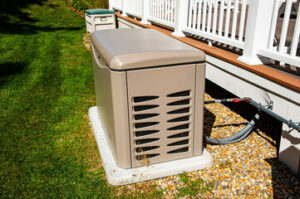Sheepadoodles require a good amount of daily exercise and activity. This is important to their mental health and to help them burn off energy.
They get along well with children and often enjoy herding them like a herding dog would. However, they should be supervised around small children. Click the Sheepadoodle Puppies For Sale In Ohio to learn more.

Choose a reputable breeder. These breeders are dedicated to responsible breeding practices and prioritize the health of their puppies. They will provide documentation of the parent’s health screenings and veterinary care.
They are obedient
Sheepadoodles are smart, quick learners that respond well to training. This makes them excellent candidates for advanced obedience classes and tricks. To get the best results, keep training sessions short and use treats for reinforcement. It’s also important to train your puppy in a variety of environments to help them focus and obey commands even when they are distracted.
Sheepadoodles are very curious by nature and enjoy exploring their environment. This curiosity can be a positive trait in a family dog, but it is important to supervise your puppy when they are near small animals or other pets. This will prevent them from accidentally scaring or harming the smaller animals.
One thing to watch out for is a tendency of some Sheepadoodles to herd children. This herding instinct can cause them to nip at the child’s heels to encourage them to come back to them. Early training can discourage this behavior, but it may take some time and patience.
To train your Sheepadoodle, start with basic obedience commands and progress to more complex skills. Sheepadoodles are intelligent dogs that can pick up new skills quickly, so it’s important to be consistent with training. Using clicker training is an effective way to teach your Sheepadoodle new behaviors. This method involves using a small handheld device that emits a clicking sound when pressed. The clicking noise is accompanied by a reward, such as a treat.
Sheepadoodles require moderate exercise, but they can be good apartment dogs as long as they are given enough attention. They are active dogs that thrive in yards, but can also play quietly on the couch with their owners. They also enjoy playing games with kids and burning off their energy.
They are playful
Sheepadoodles have a natural ability to play with people of all ages. They love to run around and chase squirrels in the backyard, but they’re equally happy to sit on your lap and watch TV with you. This makes them a perfect companion for families with children, and they often become the kids’ favorite dog. They also love playing games like fetch. This is one of the easiest mental activities for dogs to learn, and it can be done anywhere, even in the snow.
Sheepadoodles are also naturally protective of their people, and they may bark to alert you of strangers or other dangers. However, they’re not guard dogs, and they will usually only warn you of potential threats instead of attacking them. Sheepadoodles can also show herding instincts, which means they might nip at small children to herd them or protect their food from other pets. This behavior can be prevented through early training.
If you have other animals, it’s important to introduce your Sheepadoodle puppy slowly and carefully. You should try to make the introduction process as low stress as possible, and ensure that both animals have a safe space to retreat to when they’re uncomfortable. It’s also recommended to use positive reinforcement during the acclimating process and train your puppy to be friendly to other animals.
Sheepadoodles don’t shed much, but they do need regular grooming to keep their coat clean. It’s a good idea to brush them 1-2 times per week and trim their ear hair on a regular basis. Grooming your Sheepadoodle regularly will also help prevent ear infections and tangled hair.
They are friendly
Sheepadoodles are easy to train and love to please their owners. They are highly social and need to be around people for most of the day. They do not thrive when left alone for extended periods of time and may develop anxiety and destructive behavior. If you work long hours or spend a lot of time away from home, the Sheepadoodle may not be the right breed for you.
They are a good match for kids and often love playing games with them. They also enjoy burning off their energy with vigorous exercise and will sleep soundly after a long play session. However, their innate protectiveness can sometimes kick in too strongly, a trait inherited from their sheepdog ancestors. If this is a concern, it is important to train your Sheepadoodle to respond to the sound of their name or a verbal command rather than physical contact.
If you are looking for a Sheepadoodle puppy, it is best to find one from a reputable breeder. These breeders prioritize responsible breeding practices and will provide health screenings for genetic conditions and vaccination records for the puppies’ parents. They will also be transparent about their living conditions and willing to show you where the puppies and their parents are raised.
As with any dog, Sheepadoodles must be routinely groomed to keep their coats clean, healthy and free from mats and tangles. This can be done yourself or by a professional groomer. Sheepadoodles are also prone to ear infections, and will need regular cleaning to remove dirt, moisture and earwax build-up. These dogs can be difficult to groom if they are not used to it, so it is best to introduce them to the process gradually and use treats to reward them when they cooperate.
They are intelligent
Sheepadoodles are highly intelligent and thrive as cherished members of the family. They adapt well to many environments and lifestyles, making them a great choice for single-person households as well as larger families. However, they do require regular exercise and mental stimulation. They also need regular grooming and ear cleaning to prevent infection.
Sheepadoodles are extremely easy to train, as they’re eager to please their people. This means they learn quickly and respond well to positive reinforcement. They’re also incredibly dependent on their people and love to be right by their side. This dependence makes it easy to teach them basic obedience commands like sit, down, and stay under distraction. Using motivation that works for your dog is key to training them to obey commands, and sheepadoodles tend to be motivated by food, toys, praise, and affection.
Although sheepadoodles are not inherently barky dogs, they do notice strange things going on around their home and may warn you of strangers approaching your house. However, they will not attempt to attack any intruders, so they don’t make good guard dogs. Keeping your dog active and socializing her can help her develop a “watchful” instinct and avoid the tendency to bark excessively.
Sheepadoodles get along very well with children and are gentle with them. In fact, they often let kids roughhouse with them, and they enjoy the attention and energy that it gives them. Sheepadoodles also do very well as therapy dogs, and they can comfort people who need emotional support. However, you must meet all the legal requirements to qualify your Sheepadoodle as an ESA.
Like any breed of dog, sheepadoodles are susceptible to health problems. Some can be genetically predisposed to autoimmune disease, heart disease, gastrointestinal disorders, and eye problems. They can also develop hip dysplasia, cataracts, and sebaceous adenitis. If you’re considering getting a Sheepadoodle, it’s important to research the breeders and choose one that is accredited by a recognized veterinary facility. You should also look into the cost of microchipping your dog, which will allow you to identify her if she gets lost or stolen.
They are healthy
Sheepadoodles are healthy dogs that make good family pets. They are playful and intelligent, and they like to play with children. They are also quick learners and can be trained with positive reinforcement. They are usually very friendly towards other people and dogs, but they may nip at children as a herding instinct, especially when playing with young kids. Pet parents should be aware of this and take care to teach their dog that nipping is not acceptable.
These dogs are very active and need lots of exercise, especially when they are puppies. They also love water, so going for a swim is a great way to burn off some of their energy. Regular physical activity can help prevent the development of joint problems in older dogs. However, it is important to use a low-impact exercise until the puppy has finished growing to avoid damaging their developing joints.
Although Sheepadoodles are healthy, they can inherit certain health issues from one of their parent breeds. Some of these include Cushing’s disease, Addison’s disease, hip dysplasia, and cataracts. They can also be prone to bloat, so it is important to have them examined on a regular basis by an accredited veterinarian.
In addition to ensuring that your Sheepadoodle is healthy, it’s important to feed them a high-quality food that is appropriate for their size. Large-breed puppies have slower bone growth, so they need a diet that is rich in protein. Additionally, they should be fed a food that is free of artificial colorings and flavors. This will help keep their coat in pristine condition and protect them from food allergies and sensitivities. These dogs should also be brushed on a regular basis to keep their coat clean.





